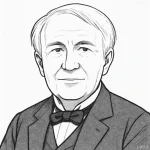“If people are good only because they fear punishment, and hope for reward, then we are a sorry lot indeed.”

- March 14, 1879 – April 18, 1955
- German-born Jew
- Physicist
table of contents
Quote
“If people are good only because they fear punishment, and hope for reward, then we are a sorry lot indeed.”
Explanation
In this quote, Einstein critiques the idea of morality based solely on external motivations like punishment and reward. He suggests that if people act morally only out of fear or the promise of reward, they lack true ethical integrity. For Einstein, genuine goodness should arise from an internal sense of compassion, empathy, and responsibility, not from selfish incentives. Morality grounded in external consequences, he argues, does not reflect real virtue; rather, it shows a superficial approach to ethics that fails to embody the deeper principles of humanity.
Historically, many philosophers have discussed the concept of intrinsic versus extrinsic motivation in ethics. Immanuel Kant emphasized acting out of duty and moral principles rather than for personal gain, while Socrates argued that true virtue comes from an understanding of goodness itself, not from fear or desire. Einstein’s statement reflects the belief that a truly ethical life is lived by one’s own values and convictions, not merely in response to external pressures.
In today’s world, Einstein’s insight encourages us to reflect on the motivations behind our actions and to cultivate a sense of morality that is driven by internal values rather than external rewards or punishments. His words remind us that ethical integrity lies in acting with sincerity and compassion, even when there is no promise of gain or fear of reprisal. This perspective promotes a deeper, more genuine approach to morality, inspiring us to build character that is strong, principled, and rooted in an authentic desire to do good for its own sake.
Would you like to share your impressions or related stories about this quote in the comments section?




